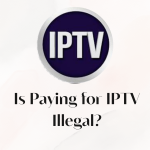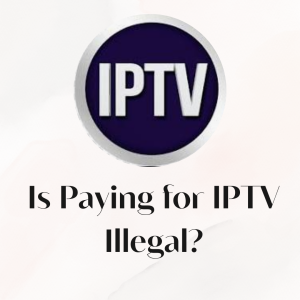In the ever-expanding landscape of digital entertainment, Internet Protocol Television (IPTV) has emerged as a popular alternative to traditional cable and satellite services. As the popularity of IPTV grows, so do questions about its legality, particularly when it comes to paying for IPTV services. In this exploration, we’ll delve into the legal aspects surrounding IPTV and whether paying for such services is considered illegal.
Understanding IPTV: A Brief Overview
IPTV, or Internet Protocol Television, utilizes Internet technology to deliver television content to users. Unlike traditional cable or satellite services, which transmit signals through physical infrastructure, IPTV relies on internet protocols to stream content directly to devices. This technology enables a more flexible and personalized viewing experience.
The Legitimate Side of IPTV: Licensed Services
It’s essential to distinguish between legitimate, licensed IPTV services and those operating in a legal gray area. Many IPTV providers operate within the bounds of the law, securing proper licenses and permissions to distribute content. Subscribing to these licensed services is entirely legal and aligns with copyright regulations.
The Legal Gray Area: Unlicensed IPTV Services
While some IPTV services adhere to legal requirements, there exists a segment of the industry that operates without proper licensing. Unlicensed IPTV services often offer access to copyrighted content without the necessary permissions, raising concerns about legality.
Is Paying for IPTV Illegal?
The legality of paying for IPTV services largely depends on the provider and the content they offer. If you are paying for an IPTV subscription from a licensed and authorized service, you are on solid legal ground. These services obtain the necessary rights to broadcast content and adhere to copyright laws.
However, the situation becomes murkier when dealing with unlicensed IPTV services. Subscribing to such services, even if unintentional, may contribute to copyright infringement. Users of unlicensed IPTV services may find themselves on the wrong side of the law, facing potential legal consequences.
Understanding the Risks: Legal Consequences of Unlicensed IPTV
Paying for an unlicensed IPTV service poses risks beyond legal consequences. These services may lack the reliability and quality assurance of licensed counterparts, and users may find their subscriptions abruptly terminated due to legal actions against the provider.
Conclusion: Navigating the Legal Landscape of IPTV
In the world of IPTV, legality hinges on the provider’s adherence to copyright laws and licensing agreements. To ensure a legal and secure viewing experience, it’s advisable to opt for IPTV services that operate within legal frameworks. Before subscribing, conduct thorough research on the provider’s licensing status, terms of service, and reputation within the industry.
Remember, staying on the right side of the law not only safeguards your interests but also contributes to the sustainability of the entertainment industry. When in doubt, choose licensed IPTV services that provide a legitimate and enjoyable streaming experience without legal implications.












 USA dollar
USA dollar  SAUDI RIYAL
SAUDI RIYAL